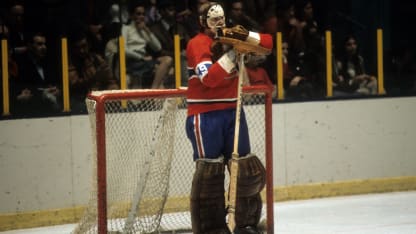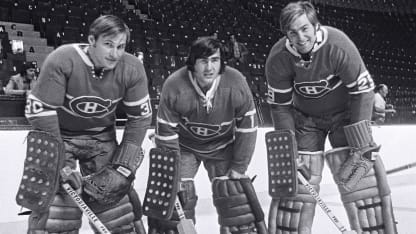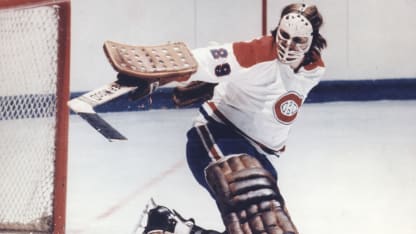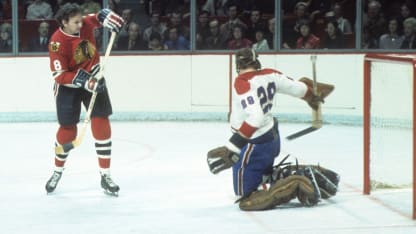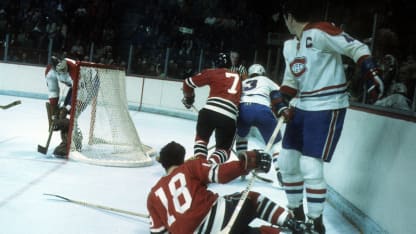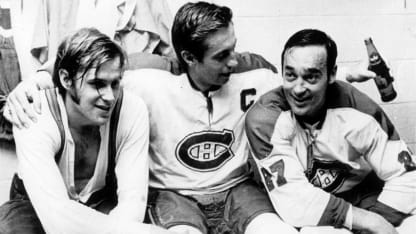Bruins center Phil Esposito, among the many Boston snipers stymied in that series, resorted to calling Dryden an octopus, a backhanded compliment to the goalie's long, puck-stopping limbs. He also said Dryden had arms like a giraffe, displaying his full admiration of the goaltender, if a sorry misunderstanding of a giraffe's anatomy.
Dryden led the Canadiens to a six-game semifinal series win against the Minnesota North Stars, facing an average of 33 shots per game. Then, in one of the NHL's greatest Stanley Cup Finals, he carried Montreal to a seven-game victory against the Chicago Blackhawks for the Canadiens' 17th Stanley Cup championship.
Of the thousands of saves Dryden would make in his career, none was finer than the Game 7 stop he made on Chicago's Jim Pappin. The Canadiens were up 3-2 and the Blackhawks were coming at him in waves.
"Chicago had the puck behind our net and passed it in front," Dryden said when we talked at length about this save. "For some reason, (Chicago defenseman) Keith Magnuson was in the slot, which seems odd to me in that he was not an offensive player at all. Why he found himself there, I'm not sure. His shot went right at me, along the ice, and it hit my stick and deflected out to my right.
"Literally between the moment he took the shot and the moment I stopped it, I knew I'd have to make the save and already be moving to stop the rebound. Usually they're separate and discreet, but this was one movement, where the first part of the save was blocking Magnuson's shot and the second part was throwing out my right leg for what I knew had to come next.
"The puck deflected out to Jim Pappin, but I was already in the process of moving to stop his shot before he had taken it. He shot it into my leg.
"What I remember, vividly," Dryden said, "was the strangled sound, first of 'Yaaaayy…' and seeing his arms start to go up in the air -- and then his arms and voice stop.
"It seems to me there was some moment (later) that Jim and I were together, with someone else, and he made a passing comment like, 'I've had to talk about that shot and that save all my life.' And then he laughed."
Dryden won the Conn Smythe Trophy that season, voted the most valuable player of the playoffs. In three series, he faced 711 shots, stopping 647 of them for a .910 save percentage, an almost pedestrian statistic which means nothing next to the 12 victories that brought his team the Stanley Cup.
From that understated late-season call-up in 1971 until he retired in the spring of 1979, toward election to the Hockey Hall of Fame in 1983, Dryden was a huge part of six Stanley Cup titles for the Canadiens. Along with the Conn Smythe, he won the Calder Trophy in 1971-72 as the NHL's best rookie, and the Vezina Trophy five times as the League's finest goalie, earning first-team All-Star honors in those five seasons.
The Bruins might still be wondering "what if?" about the 1964 draft when they remember Dryden's 1971 playoff heroics and how he stood before them like a brick wall for most of that decade.
As for Boston's Guy Allen and Paul Reid, whom the Canadiens sent to the Bruins in that lopsided trade? Neither ever got called up to the NHL.
